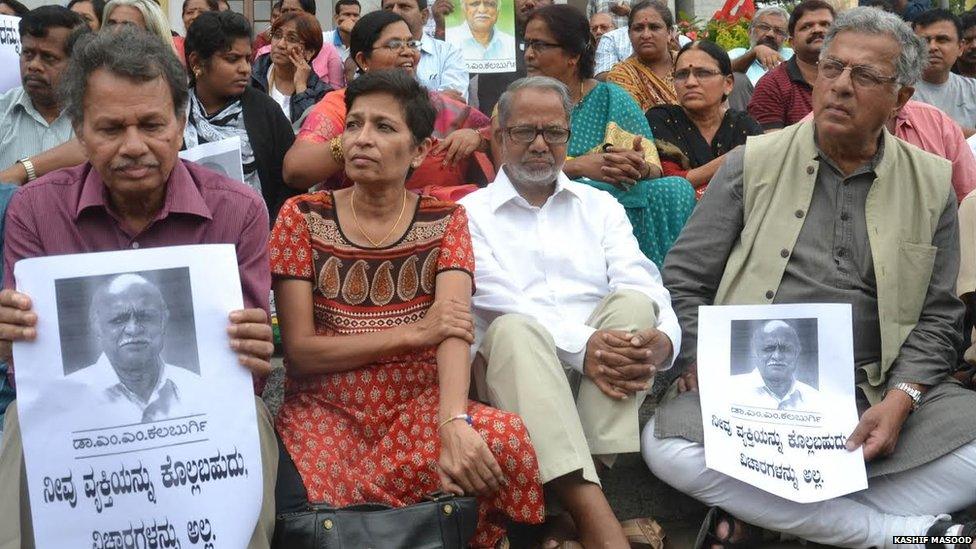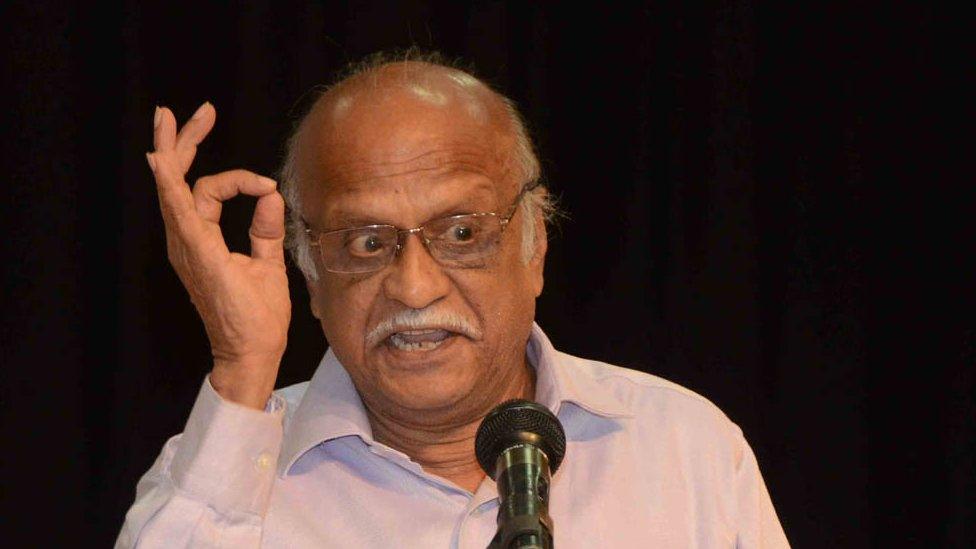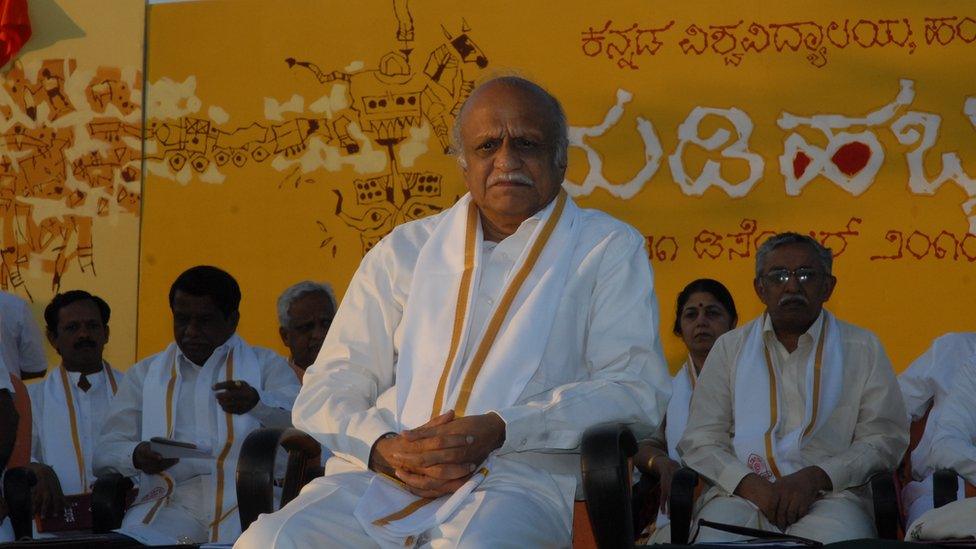Who killed Dr Malleshappa Kalburgi?
- Published

A meeting was held to condole the death of Malleshappa Kalburgi on Sunday
So who killed Malleshappa Kalburgi, a leading Indian scholar and a well-known rationalist thinker?
Police say they are still investigating the motive for Sunday morning's killing, external. Two men arrived by motorcycle at the scholar's home in Dharwad in Karnataka state. One knocked on his door, entered the house claiming to be Dr Kalburgi's student, had a brief conversation with the teacher - then shot him dead and escaped on the waiting bike.
The death of a "straight-talking, rationalist researcher of ancient Kannada literature", as a newspaper described him, has shocked the nation. Police are exploring whether the killing is linked to last year's remarks by Dr Kalburgi against idol worship, which had angered right-wing Hindu groups.
The former university vice-chancellor had been given police protection after Hindu hardliners protested against his comments. Some of these groups actually celebrated, external the professor's killing on social media yesterday.
Many believe Dr Kalburgi made many enemies within his own Lingayat community, external - an influential Hindu sect that dominates life and politics in Karnataka - with his outspoken remarks about its traditional beliefs and practices.
Lingayatas, a middle caste, comprise 12-14% of Karnataka's population, and dominate politics in the state - most of the state's chief ministers have belonged to the community, which are now also the Hindu nationalist BJP's main support base. There are some 2,000 powerful Lingayat community mutts, or monastic establishments, which also run professional colleges.

Dr Kalburgi was a leading scholar and a well-known rationalist thinker
As Raghu Karnad writes perceptively in The Wire website, external, Dr Kalburgi's murder may have more to do with the "fine rivalries and high political stakes within Lingayat caste politics".
Dr Kalburgi was a scholar of the vachana verses, the founding literature of the Lingayats. Vachanas are like daily rituals, helping people to lead their daily lives.
He had "frequently riled the Lingayat orthodoxy" with his interpretation of the verses and had received death threats from conservative members of his community.

Dr Kalburgi had been given police protection
"What Dr Kalburgi was giving was a liberal interpretation of the verses, which was more cosmopolitan and modern in its approach", says an expert. This, writes Karnad, had "implications not only for the theology of the Lingayat establishment, but for its enormous political and financial power".
In 1989, community hardliners had threatened to kill him for writing a "Kannada-language book they claim blasphemes a 12th century saint", according to a civil rights group report, external.
Dr Kalburgi was given protection by police and a group of 43 local writers and academics had formed a committee in support of the book. Recently, he had irked the hardliners again by saying that Lingayats could not be called Hindus.
At a meeting to mark his death yesterday, there was an overarching concern, writes Karnad, that a "culture of lethal violence might overwhelm the hallowed culture of discussion and questioning in Lingayat society".
Dr Kalburgi's killing comes two years after the murder of another prominent rationalist-thinker, Dr Narendra Dabholkar, in the western city of Pune. His killers have still not been caught.
But Sunday's killing reminds me of the fate of Perumal Murugan, the well-known writer in the Tamil language who earlier this year announced his decision to give up writing forever after wrathful protests against his novel Madhorubhagan by local Hindu and caste-based groups. "Author Perumal Murugan has died," the Tamil writer and professor posted on Facebook then.
This time a thinker actually has been killed.